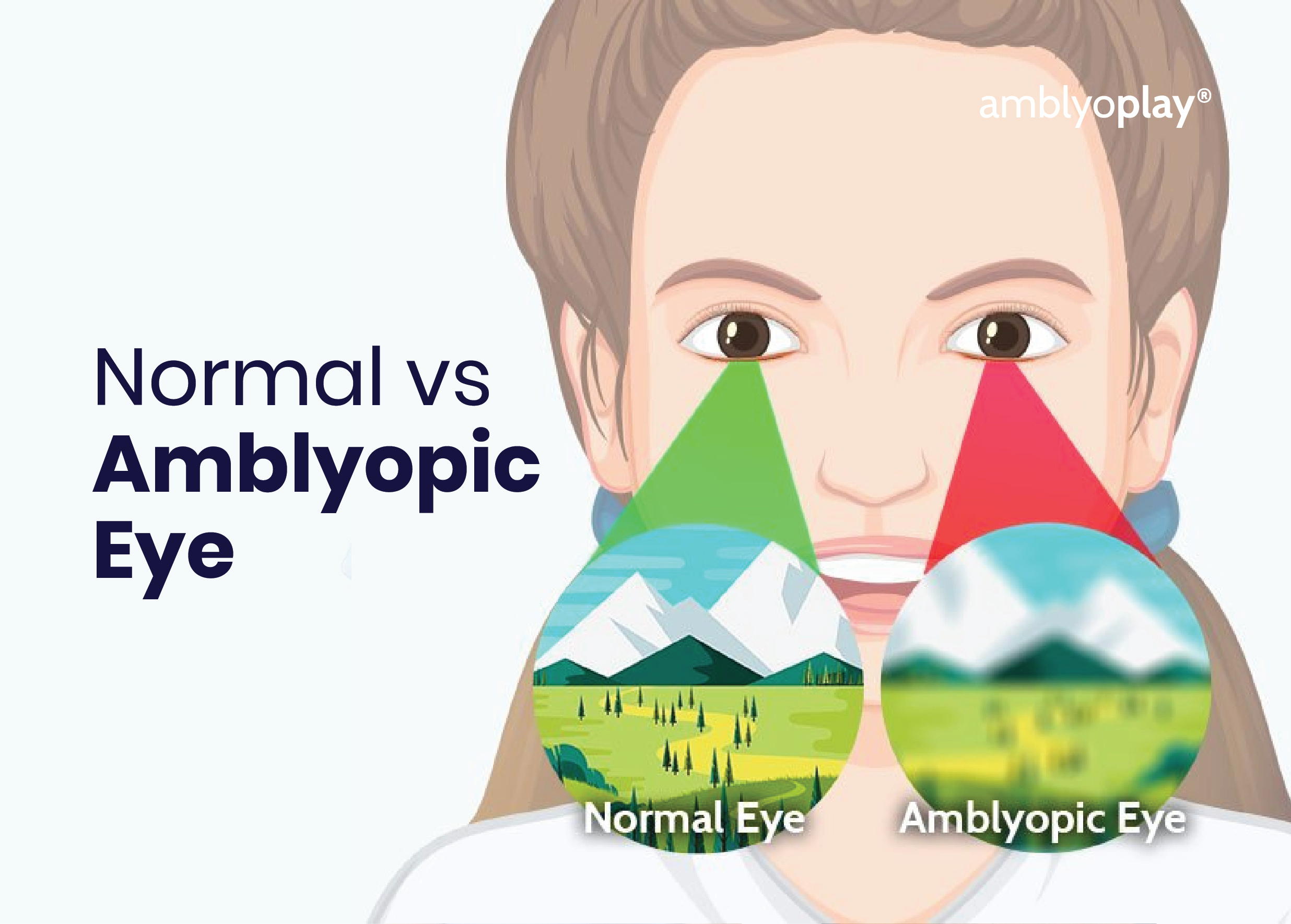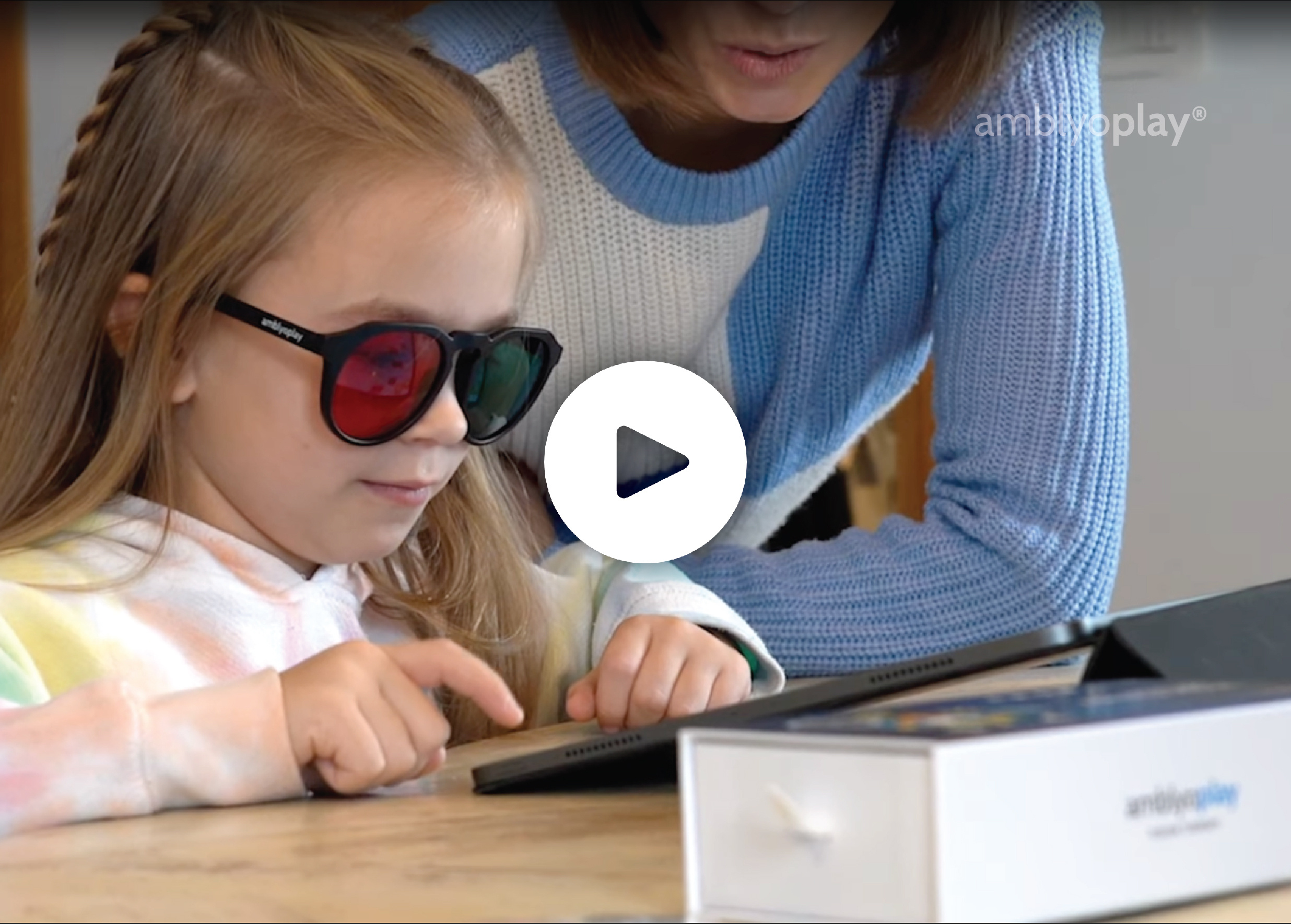

Idrija, Slovenia / October 16, 2024 - AmblyoPlay, a leading innovator in vision therapy solutions, proudly announces the launch of its revolutionary technology: Active Peripheral Stimulation (APS). APS, which is intended to advance the treatment of peripheral vision deficiencies, is a significant step towards improving the effectiveness of home-based vision therapy.
APS technology, available within the existing AmblyoPlay Vision Therapy, is tailored to improve peripheral vision by actively engaging and stimulating the peripheral areas of the retina. This unique approach improves the brain’s ability to integrate peripheral inputs, resulting in increased spatial awareness.
While amblyopia (often referred to as ‘lazy eye’) may sound like a very niche problem, up to 5% of the population suffer from this vision disorder worldwide. Nonetheless, it remains a substantial global vision problem, and public health initiatives of early screening, treatment, and management are critical.
Normal versus amblyopic eye.
People with amblyopia and other binocular vision problems often struggle with depth perception, hand-eye coordination, and reading difficulties and may experience frustration or lower self-esteem due to challenges in everyday tasks like driving, sports, and learning.
AmblyoPlay raises the bar for treating amblyopia, strabismus, convergence insufficiency, and other visual impairments by incorporating APS technology within vision therapy. The technology has been seamlessly incorporated into therapeutic exercises, ensuring a smooth and engaging experience for users of all ages.
“With APS, we’re expanding the boundaries of what vision therapy can achieve,” said Matic Vogrič, CEO of AmblyoPlay.
About AmblyoPlay Vision Therapy
AmblyoPlay was born from conversations with doctors and parents, all facing a common challenge: how to keep young patients motivated during vision therapy homework. Existing solutions were repetitive and disengaging, leading to frustration. Therefore, AmblyoPlay transformed vision therapy into a gamified experience—turning a routine task into something fun.
This playful approach not only keeps patients engaged but also improves adherence to therapy, helping families and doctors work together toward better vision outcomes.
AmblyoPlay is a vision therapy solution designed to treat vision impairments such as amblyopia (lazy eye), strabismus (crossed eyes), convergence insufficiency, double vision, and other binocular vision disorders. It complements in-clinic vision therapy and increases at-home vision therapy adherence through gamification.
By offering personalized and evidence-based therapy, AmblyoPlay provides effective solutions for children and adults alike, bringing engaging therapy into the comfort of users’ homes.
Until now, it has helped more than 25,000 users worldwide. Discover more about AmblyoPlay at https://amblyoplay.com/ or watch the video.
Discover more about AmblyoPlay
Contact details:
Contact Information:
Matic Vogrič, CEO
AmblyoPlay
matic.vogric@amblyoplay.com




